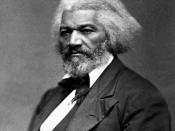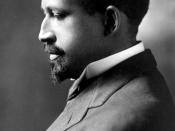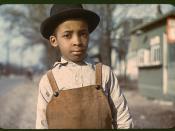W. E. B. Dubois had a unique theoretical approach to helping uplift the Negro people and finding a solution to the Negro problem. Education, particularly the way in the Negro was educated, was going to be at the core of the solution. The Negro, as a group was in a period of transition, having just come out of the institution of slavery. Finding their way in this society was crucial to their mere survival. According to Dubois, "the Negro race, like all races, was going to be saved its exceptional men". Dubois, referring to the liberally educated and intelligent men of the Negro race, called these men as the Talented Tenth. Dubois set out to first show that there were examples of this group and how they had risen among the Negroes and were worthy of being leaders. Dubois pointed attention to the likes of Phyllis Wheatly, Dr.
James Derham, Benjamin Banneker, and Frederick Douglass (self-trained). Secondly, Dubois emphasized that these leaders were of a liberal education. Finally, these leaders would have a direct impact on the Negro race, and the Negro problem, in their own respective ways.
Dubois felt that a liberal education built character and gave man a purpose in life. Dubois strongly proposed that, although not all of the Negro race could, some had to go off to obtain this education. It broadened one's horizons in the sense that it gave that man a vision of the larger world outside of his immediate surroundings. With this vision an exceptionally few Negroes would get a sense of their particular place in this world and strive to improve his condition. This cultural awareness would then need to be carried back into the Negro community. An example of this is those who went off to college,


